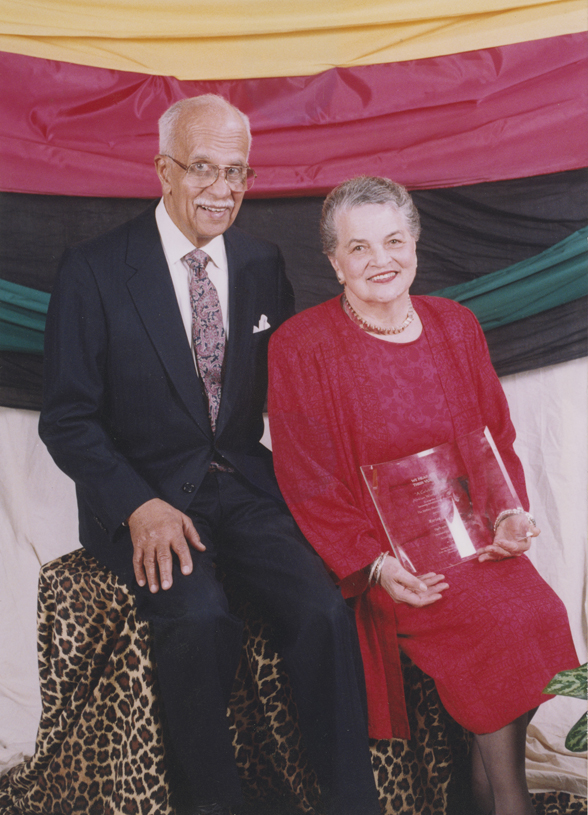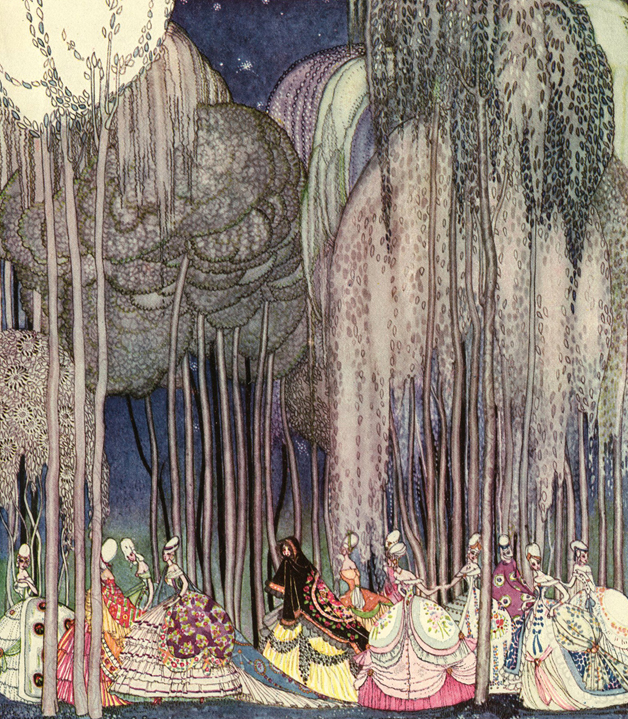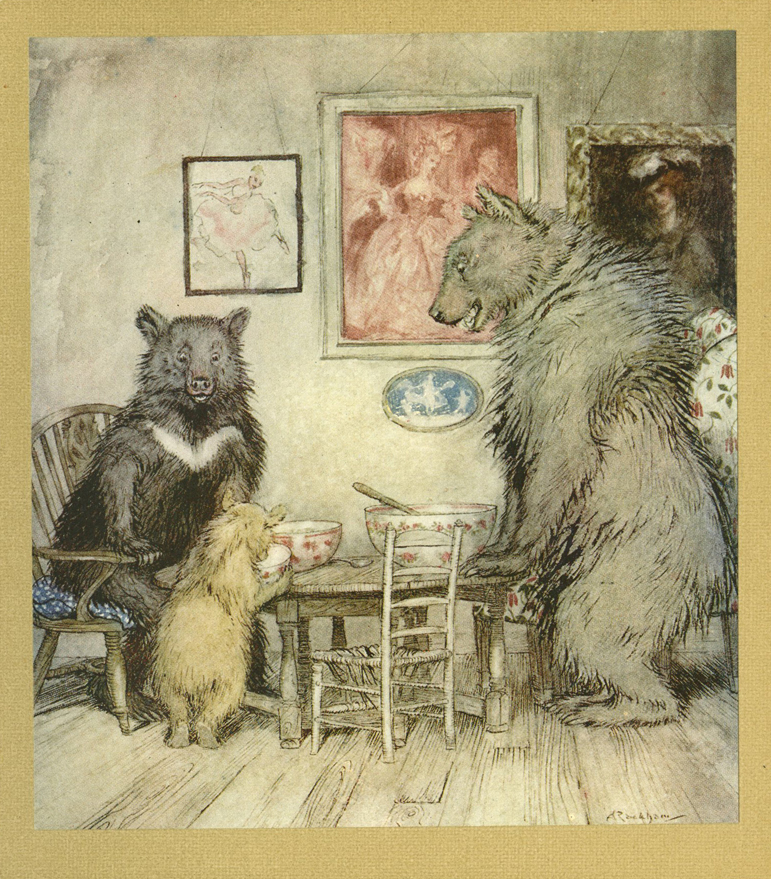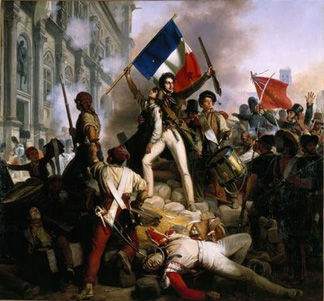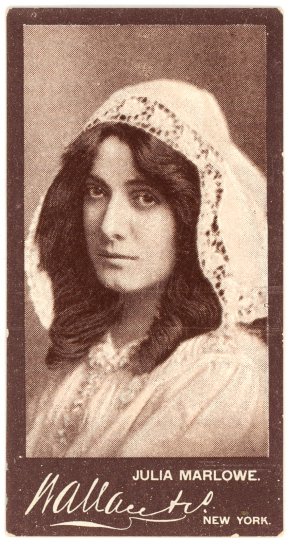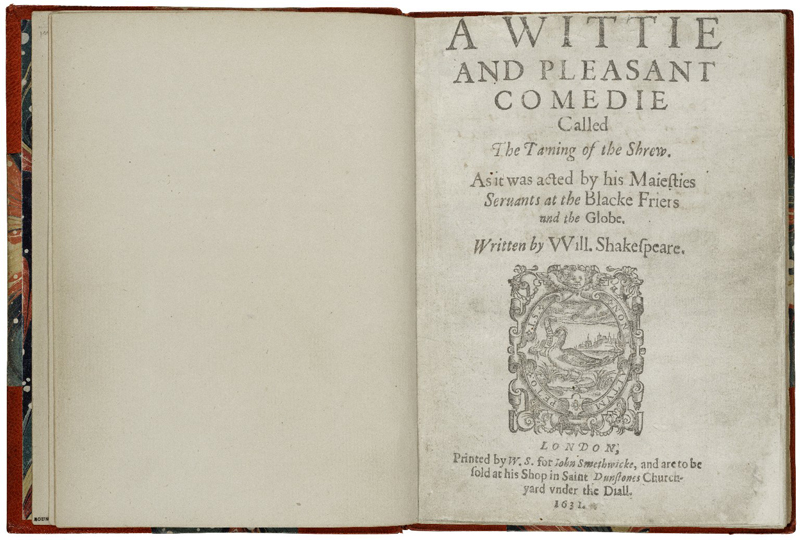By: Sydney Vollmer, ARB Intern
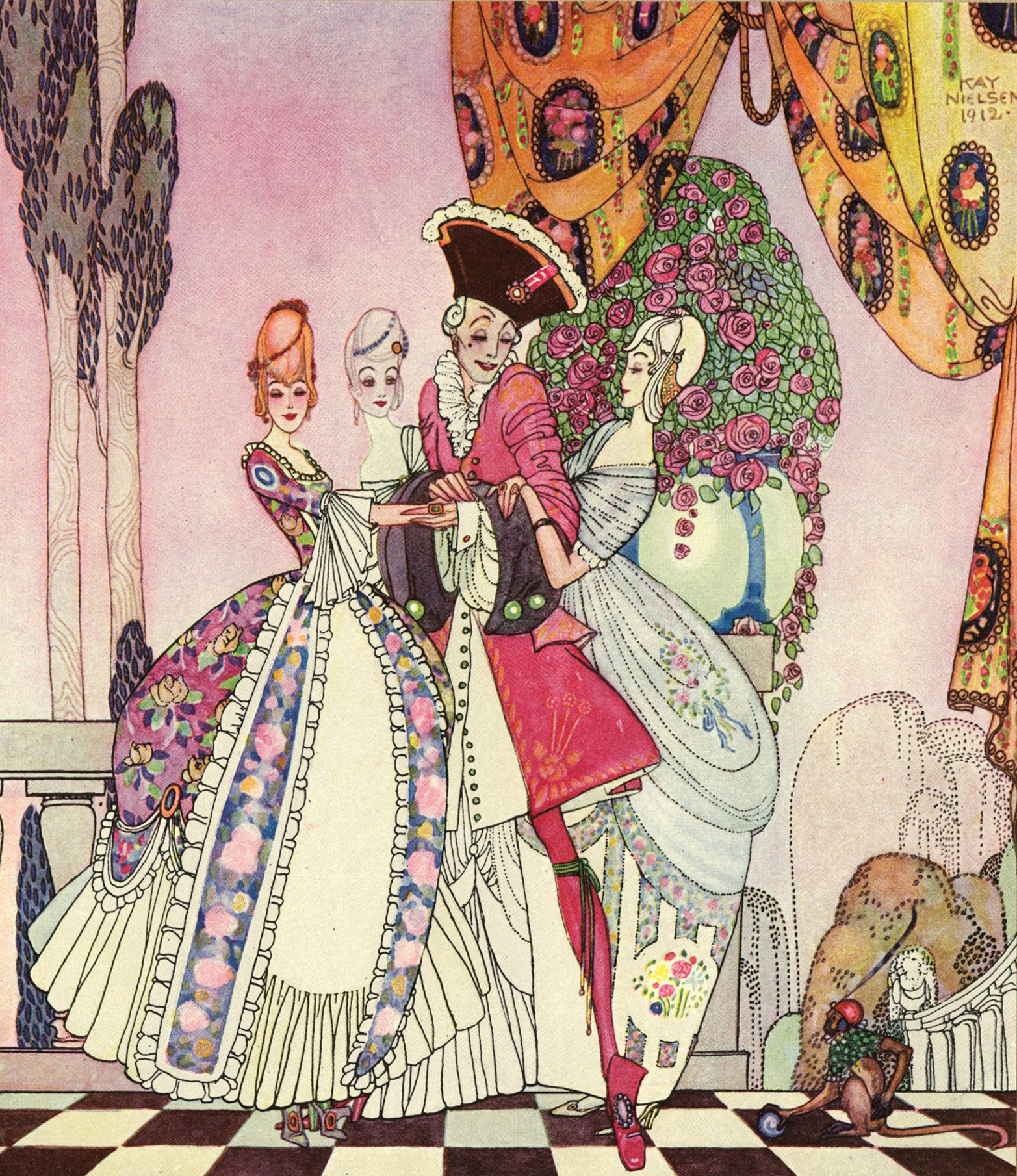 As mentioned in a previous blog post on the fairy tales in the Archives & Rare Books Library, this blog is about the illustrator of In Powder and Crinoline and many other tales, Kay (pronounced “Kigh”) Nielsen.
As mentioned in a previous blog post on the fairy tales in the Archives & Rare Books Library, this blog is about the illustrator of In Powder and Crinoline and many other tales, Kay (pronounced “Kigh”) Nielsen.
Born on March 12, 1886 in Copenhagen, Denmark, Kay was the son of two actors. His father, Martinus Nielsen, directed the Dagmarteater and his mother, Oda, was highly praised for her work both in the Dagmarteater and the Royal Danish Theater. Despite his parents’ high standing in the theatre community, Nielsen found his passion in a different art form. He studied in Paris from 1904-1911 at Académie Julian and Académie Colarossi and after he received his education, he moved to England for five years. It was during that time he received his first commissioned work as an illustrator. Continue reading

